What You Need to Know About the Amazing Healing Properties of Matcha Green Tea – 6 Ways Matcha Green Tea Heals Your Body
What You Need to Know About the Healing Properties of Matcha Green Tea – 6 Ways Matcha Green Tea Heals Your Body
Overview:
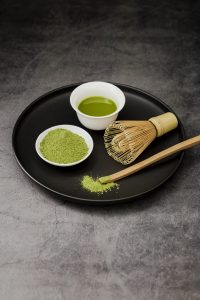
What is matcha green tea?
Matcha green tea comes from the same Camellia sinensis plant that is used to produce other types of tea, such as black, green, white, purple, and oolong tea – except it is grown differently and has unique healing properties.
It takes approximately three years before a tea plant can be harvested. About 2-3 weeks before harvest, shielding structures are built around plants to protect them from direct sunlight. This slows down photosynthesis and, as a result, increases the chlorophyll content of leaves, giving matcha its distinctive rich green color. Light conditions are then gradually decreased to near darkness, and the growth of the plant is carefully monitored during this period. After harvest, the leaves are steamed, dried, and stone-ground to make a smooth powder.
Shading and slowing down the growth process softens leaves and greatly enhances the concentration of beneficial plant compounds. A traditionally prepared matcha tea contains several times higher levels of catechins and amino acids than green tea. As you consume whole leaves instead of just steeping them in hot water, the nutrient content of matcha is also higher than what is found in other types of tea.
Catechins are a powerful class of antioxidants responsible for tea’s characteristic bitterness, whereas amino acids add a sweet flavor. The deep umami flavor of matcha comes from its delicate balance of both sweet and bitter flavors, which gives it a bold earthy aroma and a highly adaptive, nuanced taste.
Flavonoids and Cancer: The #1 Reason You Should Use “Vitamin P” to Help Fight Cancer in Your Body
Healing properties of matcha green tea
1. Antioxidant powerhouse
Green tea contains natural antioxidants, like catechins and polyphenols, that help fight free radical damage and reduce inflammation. Since matcha is also like a concentrated form of green tea, it contains exceptionally high amounts of these compounds, which makes it quite unmatched among health foods.
Research shows that matcha green tea contains about 137 times higher concentrations of epigallocatechin gallate (EGCG) than any other type of green tea. EGCG is a type of catechin compound that has been shown to boost skin health, fight infections and allergies, boost immune cells, prevent chronic diseases, and protect brain cells from oxidative stress.
In the ORAC (Oxygen Radical Absorption Capacity) test, which measures the antioxidant capacity of foods, matcha green tea scored a value of 168,500/100g. This is several times higher than acai berries, spinach (125 times!), broccoli, dark chocolate, or blueberries. According to one study, Japanese matcha green tea has the highest antioxidant potential of all tea types.
2. Provides calm energy without jitters
A cup of matcha green tea contains about three times more caffeine than green tea but significantly less than coffee or black tea. Even though it provides a decent amount of caffeine, the energy boost of matcha is not at all like the nervous energy that you experience after consuming a cup of coffee.
Caffeine has a stimulating effect on the nervous system, which boosts energy levels but also increases the production of stress hormones (primarily cortisol). Matcha green tea is high in L-Theanine, a type of amino acid that promotes relaxation, reduces anxiety, and lessens the stress-inducing effect of caffeine. L-Theanine is known to increase alpha brain waves, which is associated with a state of calm alertness and clarity of thought. While all types of tea contain this amino acid, matcha contains about five times more L-Theanine than regular tea.
Research shows that because of its unique combination of caffeine and healing plant compounds, matcha can improve concentration, information processing speed, and memory without any jitters or energy crashes.
3. Protects your brain
Due to its cognition-boosting, stress-relieving, and anti-inflammatory properties, matcha green tea can protect your brain from age-related neurodegenerative diseases like Alzheimer’s and Parkinson’s disease.
Chronic stress can have a shattering effect on your cognitive function and productivity. L-Theanine compounds found in matcha can increase the release of GABA (gamma-aminobutyric acid) neurochemical, which reduces anxiety and induces relaxation without making you feel sleepy.
Study shows that drinks high in L-Theanine can reduce mental fatigue, lift mood, reduce blood pressure, relieve psychological stress, and greatly improve brain performance. Researchers also found that combining L-Theanine with caffeine has more benefits than taking L-Theanine in isolation.
Regular consumption of matcha green tea is also clinically proven to improve cognition in elderly people.
4. Reduces the risk of cancer
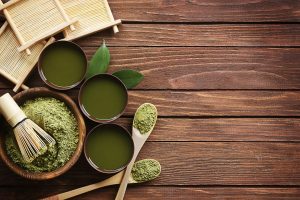
According to the National Cancer Institute, high concentrations of free radicals in the body may promote tumor growth and cause gene mutations. Matcha green tea, which is high in plant-based antioxidants, neutralizes free radicals, promotes natural detoxification, reduces chronic inflammation, and prevents DNA damage caused by UV rays and environmental toxins.
Research shows that numerous health-promoting effects of matcha green tea may also help improve the efficacy of chemotherapy drugs and treatments.
5. Promotes weight loss
Like green tea, matcha also promotes metabolism and increases your total energy expenditure. Numerous studies have shown that a healthy combination of EGCG and caffeine may promote mild weight loss and support healthy weight management.
Replacing your regular cup of coffee with matcha tea can increase the number of calories you burn from exercise, as well as from rest. In one study, green tea improved insulin sensitivity and increased fat burning during moderate-intensity exercise by up to 17%.
It should be kept in mind that creating a calorie deficit is necessary for losing weight. Taking matcha alone will not help you lose any pounds unless you are on a nutritious diet and exercising regularly. However, matcha itself is extremely low in calories and can surely back your efforts by keeping your sugar levels in check and your energy levels steady.
6. Lowers bad cholesterol
Animal studies have shown that regular consumption of matcha lowers bad cholesterol and triglyceride levels. In one study, mice fed with a high-fat diet were given matcha tea for four weeks. At the end of the trial period, blood sugar and LDL cholesterol levels were found to be significantly lower in the matcha group. Researchers suggested that this may be due to the tea’s high antioxidant potential. Matcha tea is also known to reduce the risk of heart disease and stroke.
How to prepare a cup of matcha
Preparing a healing cup of matcha is extremely simple and requires minimal ingredients – hot water, matcha powder, and a whisk.
- Take ½ -1 tsp (3-4 grams) of matcha powder in a cup and add a small amount of hot water. Avoid boiling water for making this tea, as it may amplify the bitter taste of matcha’s catechin Experts recommend using warm-hot water with a temperature below 175 degrees Fahrenheit – remember that your water temperature can significantly alter the taste.
- Mix thoroughly with a whisk to remove lumps until you achieve a nice frothy, creamy texture. Traditionally, a bamboo whisk is used to make matcha, but you can use any type of whisk or hand blender for this purpose.
- Add 4-6 ounces of hot water (or steamed milk) and mix well.
You can also add milk and a mild sweetener like honey to your matcha tea. It blends well and tastes delicious with most types of milk, including soy milk, coconut milk, and almond milk.
Safety and risks of matcha green tea
Experts recommend limiting your daily intake of matcha to 1-2 cups per day. Drinking high amounts of matcha green tea or any type of green tea has been known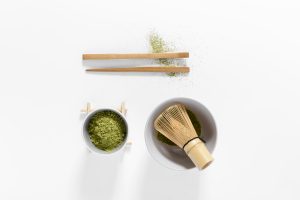
Also, try to replace your routine coffee with matcha rather than simply adding it to your diet. Taking high amounts of caffeine can increase stress and interfere with sleep patterns, causing disturbances like frequent dreaming, difficulty getting up in the morning, or insomnia.
Matcha green tea also acts as a natural diuretic. If you are taking diuretic medicines, consider speaking to your doctor before including matcha in your diet.
Final thoughts
Matcha is a type of green tea with concentrated active compounds and exceptional healing properties. While specific research on matcha tea is relatively limited, its plant compounds are extensively studied for their anti-inflammatory, immune-boosting, cancer-fighting, stress-relieving, and nootropic abilities.
Due to its high content of catechins, particularly EGCG, matcha green tea is known to protect cells against oxidative damage, which can preserve bone strength and prevent various chronic inflammatory diseases.
Its unique composition of amino acids and caffeine provides a stable supply of energy, which helps you stay focused without causing anxiety or rapid change in heart rate. Truly brain-boosting in every sense, matcha green tea improves the clarity of mind and induces a state of restful alertness, promoting creative and intellectual practices.
To Your Health!
References
https://pubmed.ncbi.nlm.nih.gov/14518774/
https://www.ncbi.nlm.nih.gov/pmc/articles/PMC7231151/
https://www.ncbi.nlm.nih.gov/pmc/articles/PMC3509513/
https://www.cancer.gov/about-cancer/causes-prevention/risk/diet/antioxidants-fact-sheet
https://www.ncbi.nlm.nih.gov/pmc/articles/PMC4728665/
https://pubmed.ncbi.nlm.nih.gov/25268837/
https://pubmed.ncbi.nlm.nih.gov/28784536/
https://pubmed.ncbi.nlm.nih.gov/26448271/

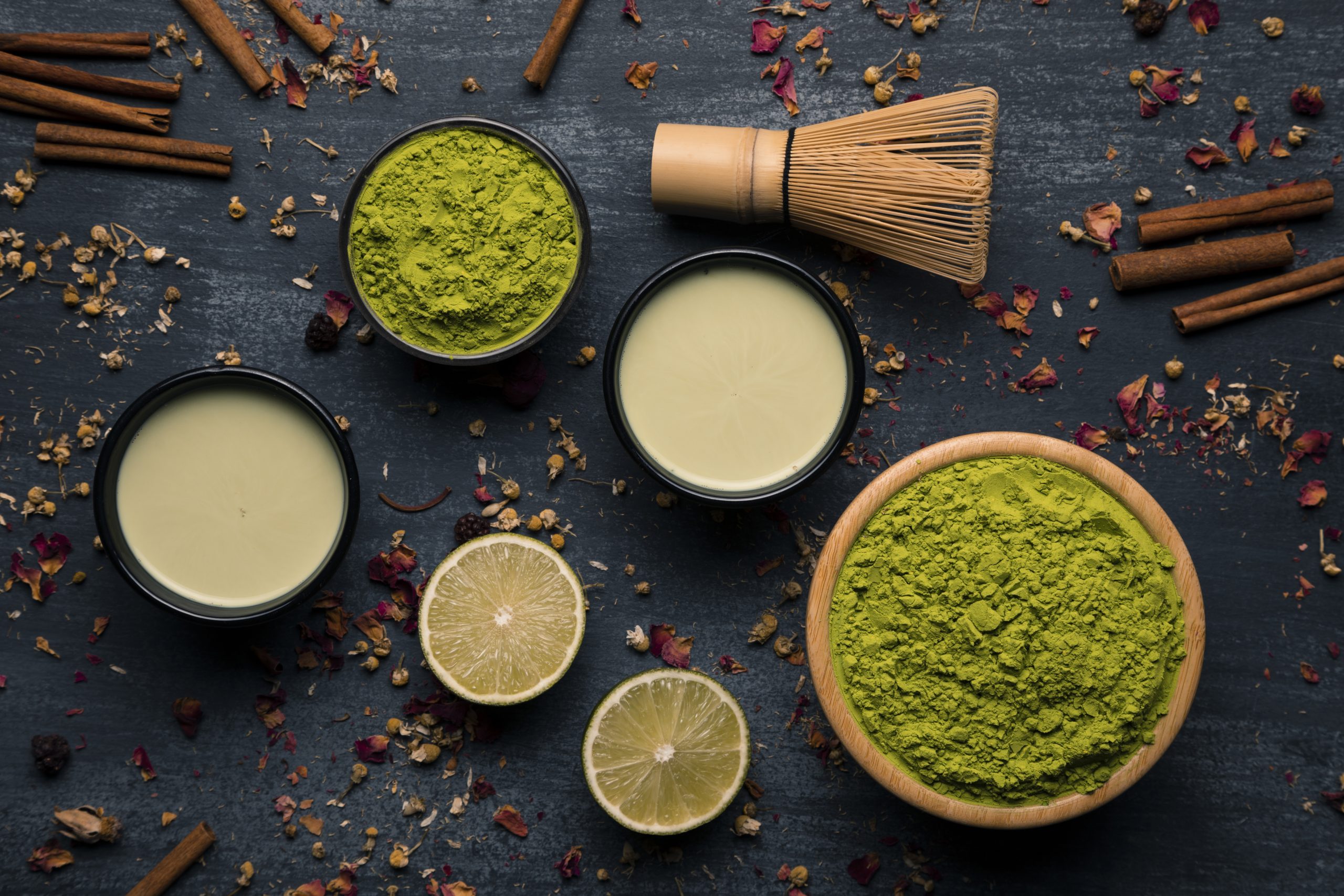




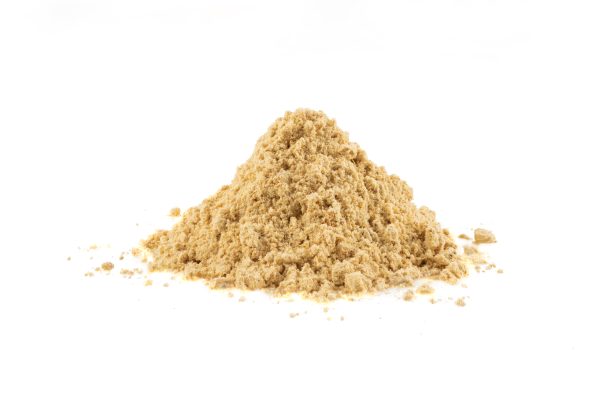






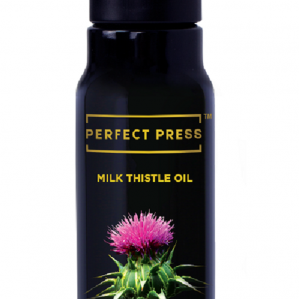













0 Comment